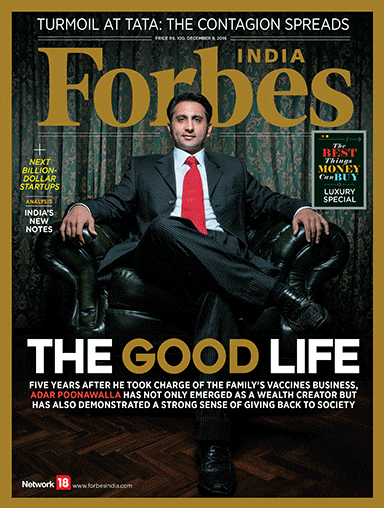
The luxe state of mind
Time, exclusivity, privacy and comfort are also luxuries for the busy billionaire

Now, if you want to put a face to the concept of a luxe life, few fit the bill better than the Poonawallas who run the successful vaccine company Serum Institute of India. Adar, the 35-year-old son of Cyrus Poonawalla (who figures at number 10 on the 2016 Forbes India Rich List), is, however, going beyond mere wealth creation and living the good life to doing good and giving back to society through the Villoo Poonawalla Charitable Foundation, named after his late mother. So, even as he converts a Mercedes-Benz S Class into a Batmobile lookalike for his son’s sixth birthday, Adar is also putting in time, energy and some serious money to clean up Pune city, where he lives, of garbage.
Moving away from luxury, what a newsy few weeks it has been of late. Even as events unfolded at Bombay House, the headquarters of the House of Tata where the boardroom battle between Cyrus Mistry and Tata Sons shows little signs of abating, Prime Minister Narendra Modi’s move of demonetising the existing Rs 500 and Rs 1,000 currency notes captured the imagination of the people and also threw many into a tizzy.
While most agree that it is a bold move to attack terror financing and the black economy, the gaps in execution and the consequent hardships faced by the common man have become topics of heated debate.
We track these developments through an update on the role of independent directors at the Tata group companies, even as Manish Sabharwal, chairman of TeamLease Services, and Ajit Ranade, chief economist at the Aditya Birla Group, weigh in with their views on demonetisation.
This issue also has the second annual Forbes listing of the Next Billion-dollar Startups, an exciting set of companies which are transforming their industries. And a familiar name, Girish Mathrubootham’s Freshdesk, which sells cloud-based customer support software, finds a place in this list.
Best,
Sourav Majumdar
Editor, Forbes India
Email:sourav.majumdar@network18publishing.com
Twitter id:@TheSouravM
(This story appears in the 30 November, -0001 issue of Forbes India. To visit our Archives, click here.)
X





